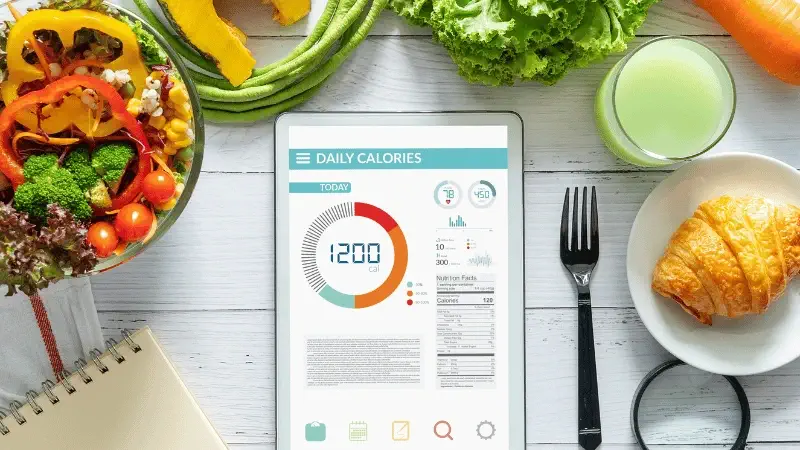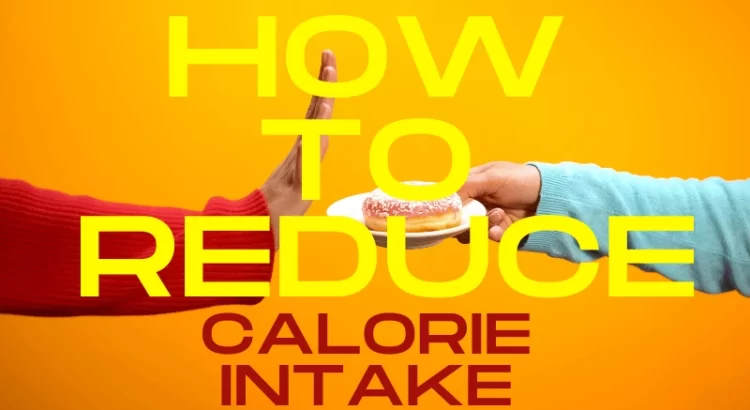Whether you are trying to shed those extra pounds or just trying to adapt to a healthy lifestyle, getting a proper idea of how to manage your calorie intake is an important thing.
We can understand that making drastic changes to your diet can be challenging. This is why we are here to guide you with a proper approach that will help you gradually reduce your calorie intake.
In this blog, we are going to share practical tips and methods which will help you to cut down excess fat with a proper diet.
So, if you are wondering how to reduce calorie intake without starving yourself, then following these smart and efficient calorie control techniques will help you at all.
Calorie control is nothing more than forming healthier habits that fit perfectly into your daily routine.
So, if you are ready to make positive changes in your life and get a balanced meal every time, then read this entire blog.
How to Gradually Reduce Calorie Intake?

When it comes to maintaining a healthy lifestyle and achieving the toned body that you desire, calorie intake plays a crucial role.
However, making sudden and drastic changes to your diet plan can become fatal for the well-being of your body.
That is why following a gradual process while reducing calorie intake is essential. With this gradual process, you can continue your calorie deficit diet without feeling restless and hungry.
So, let’s take a quick look at some of the most efficient and easy-to-follow tips that will help you in this process:
1. Start with Awareness: Keeping track of your calorie intake is extremely important. Start by maintaining a food journal or install any mobile app that will help you to track your calorie intake.
This will help you to identify you’re eating pattern and find out the calorie excess.
2. Set Realistic Goals: Aim for a gradual reduction in your calorie intake. Start with easy and attainable goals which will make the process more manageable. Setting unrealistic goals will make you easily frustrated.
3. Eat mindfully: Pay proper attention to what you are eating and try to plan your meals to avoid binge eating. While eating, pay proper attention to your portions and calorie count.
This will help you to prevent overeating which is essential for reducing calorie intake. If you are wondering how to reduce calories fast, then this is the most realistic process.
4. Stay Hydrated: Water can always help you to prevent unnecessary snacking. Drink plenty of water throughout the day to feel fuller for a longer period. This will help you to manage your hunger when you are on a calorie deficit diet.
5. Prioritize Protein Intake: When you are trying to reduce your calorie intake, include more protein sources in your daily meal.
Try out protein items such as fish, tofu, chicken, legumes, etc. These will be great food choices for weight management.
6. Focus on Meal Replacement Shakes: Meal replacement shakes are the most convenient and effective way to follow a calorie deficit diet.
They are low in calories and filled with essential nutrients. This can be your best ally when trying to reduce calories.
But, there are many meal replacement shakes available in the market in which PhenQ meal shake is one of the most trusted ones.
However, before going for any purchase we recommended having a quick look at some PhenQ complete meal shake reviews.
7. Include More Whole Grains: opt for whole grain alternatives to high-calorie food items. Try out brown rice, quinoa, and whole wheat bread as food options. They are more filling in nature and more nutritious.
8. Limit Processed Food: Processed and ready-to-eat foods are often filled with hidden calories, additives, sugars, and saturated fats.
Choose homemade foods over any processed food items otherwise your calorie reduction goal won’t be fulfilled.
9. Don’t Skip Breakfast: Start your day with a healthy and filling breakfast. With a proper breakfast at the start of the day, you can suppress the frequent urge of overeating and emotional snacking.
10. Healthy Snacking: You can’t eliminate snacking from your life. So, whenever you feel like snacking, try out healthy snacking options like nuts, seeds, and fruits.
These all have nutritional benefits and they are extremely low in calories. You can also take soups before snack time or before your main meals to consume fewer calories.
11. Try Out Alternatives: If you are following a calorie reduction approach, then you must always practice proper alternatives.
Try to sauté your veggies, instead of frying them. Make the use of air fryers more common in your daily meals.
Take a quick look at the label of sauces and salad dressings, if they are high in calorie content then look for low-calorie alternatives.
Most importantly, replace your morning cup of cappuccino with a cup of black coffee or green tea, to eliminate some extra calorie intake.
12. Adopt a Healthy Lifestyle: Reduction of calorie intake is not just about eating right; you have to act right as well.
Incorporate regular physical exercise into your daily routine and try to improve your sedentary lifestyle.
This will help you to burn those excess calories efficiently. Also, try to get proper sleep to improve your metabolism. Most importantly, limit your alcohol consumption as it can hinder your calorie reduction process.
13. Try Out More Veggies: Fill up half of your plate with green vegetables when you are trying to reduce your calorie intake.
Vegetables are low in calories but high in fiber and other nutrients. They will help you to feel fuller and supply essential nutrients even when your body is at a calorie deficit.
Furthermore, if you are weight loss journey, you can go for leafy green vegetables as they are considered one of the best thermogenic foods for weight loss.
These are some of the most effective and convenient ways that will help you to gradually reduce calorie intake. Although, you have to be extremely consistent to get success and follow your calorie-reduced diet effectively.
Final Thought
Always remember that gradual change to your eating habit is more sustainable and can lead to long-term success.
Impulsive behaviors regarding the diet plan can never help you to achieve the goal. Be careful about the needs of your body and plan your meals according to them.
You can take helps from the above-mentioned tips and if you are not sure about the diet plan you are following, then seek guidance from a professional dietitian. They can plan a diet chart according to your specific need.
Hope you find this blog informative and, if you liked it then do share it with those who are struggling to reduce their calorie intake.
